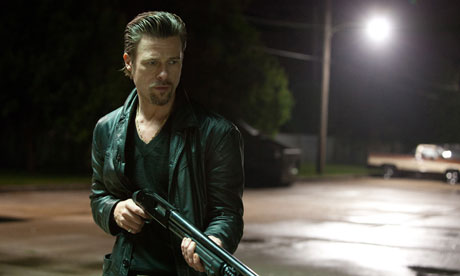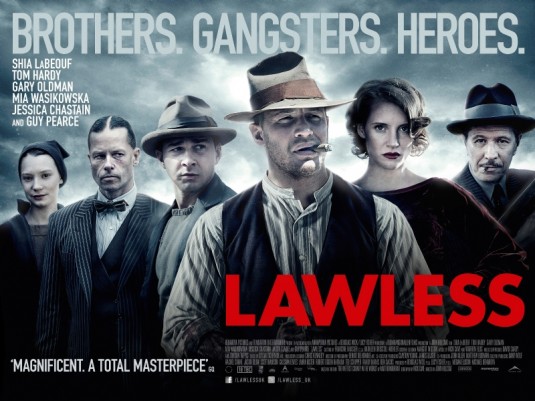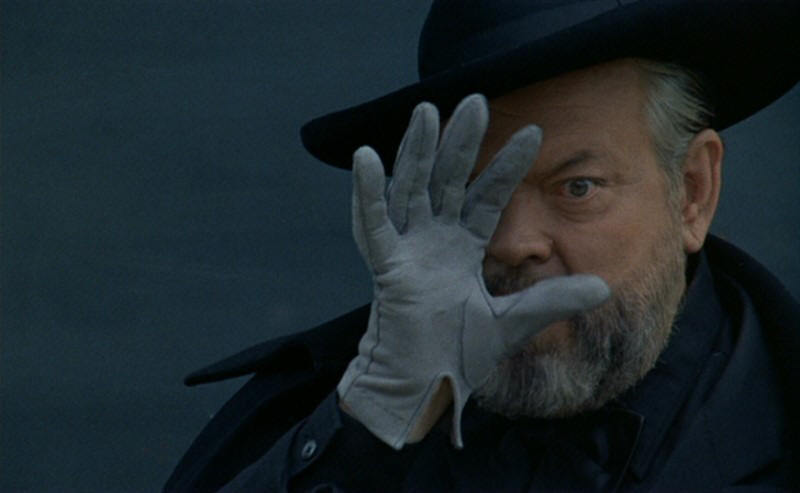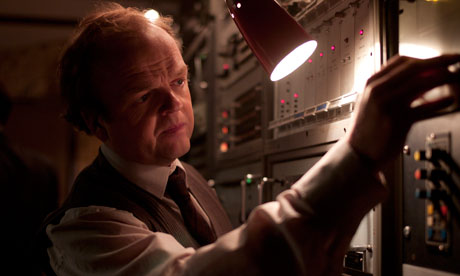Jackie Cogan is a professional enforcer who investigates a heist that went down during a mob-protected poker game.
When I saw Andrew Dominik's 2007 film The Assassination of
Jesse James by the Coward Robert Ford it immediately became one of my favourite
films; beautiful and melancholic it was a perfect character study and
unsettling look at mortality. So when I went back to examine the director's
previous work Chopper (2000) I found myself rather disappointed. Where James'
style alluded to illusions of grandeur and legend, Chopper by contrast seemed
to do it as a means of making the film critics guffaw. Like the similar Bronson
(2008) it felt like a film centred around a man just not as interesting as he
(they) think they are.
In hindsight, watching Chopper was probably a good thing,
why? Because it lowered my expectations for Killing them Softly, and as
everyone knows, the bigger they are, the harder they fall...
Dominik's films have to this point been a study of power and
betrayal coated in a what-must-be-done survivalism in a violent and uncertain
world. With Chopper it's presented from the point of view of one subject.
James' gives us a despairing look into the image of power, mortalised and
wounded before shifting focus on to the tormented Judas figure Ford himself.
With his latest feature, Dominik turns to the act of betrayal, of violence with
an icy, detached professionalism in the form of Brad Pitt's Jackie Cogan
(undoubtedly Pitt's best turn since his last collaboration with Dominik.)
Problematically, the film is let down by an overbearing, even clunky scathing
social commentary and ironic attack on the justice and political system.
Admittedly, I know very little of the American political and
social situation, so many of the films overtones will be lost on me, but it's
not hard to miss. Dominik's hand is too heavy, too often does the film linger
on slogans 'Hope' and 'Change' looming above the decaying buildings of 2008
Post-Katrina New Orleans (a change from the novel which is based in Boston) or
does the sound drown out for a snippet of electoral debate over the radio or
T.V. There is the criminal hierarchy that is there to reflect our own society led by the enigmatic, virtually unseen Dillion. No doubt the message had a bearing on the time of release, just weeks before the 2012 elections. For a film about dealing with the consequences of your actions, Dominik
must realise that his depiction of a country on it's knees is too ferocious that it borders on self-parody.
 | ||
| Pitt didn't take well to criticism. |
Although Pitt may be the main attraction here as the undeniably cool, leather jacket sporting Cogan, across the board the dialogue-heavy film is elevated by terrific performances. Scoot McNairy (Really?) proves to be a newcomer to watch for. The early bank-robbery sequence is as intense as they come, the two (Mendelsohn is Scoot's partner) have a nervous unease about them, they are unprepared for the situation as well as its consequences and it comes out beautifully in their body language and delivery. The real star of the show is the (much to brief) appearance of James Gandolfini's a sunken, broken Mickey, taking years of turmoil to hookers and alcohol. He isn't given the ending he deserves, taken out off-screen. But he is a warning for the things to come that should be heeded.
All things said, Killing them Softly is an effective and brisk anti-thriller that borrows heavily from 70s classics but has a chauvinistic intensity of it's own creation. Nobody may develop or learn anything, but that's simply because nobody can. There is no room for development here, those times have come and gone, '...in America, you're on your own' growls Pitt in the films closing monologue. It's commentary may be to forced, and it's visual flair may at times feel like it was for the critics more than anyone else, but the film's excellent performances, sleek style and moments of pure brilliance allow it to remain darkly enjoyable but don't expect it to change the world.

















